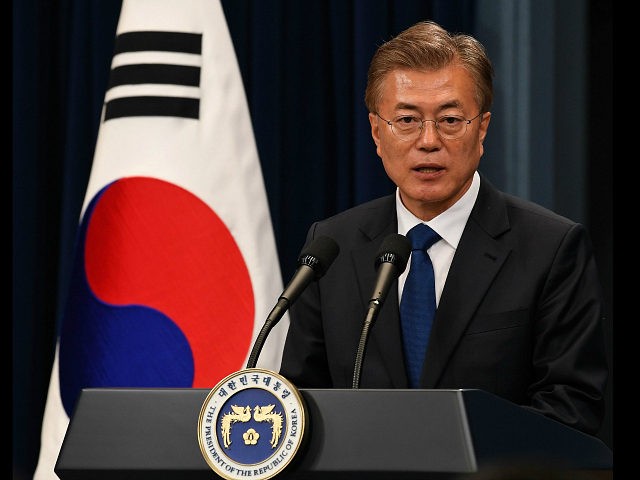South Korea, which has been considering resuming humanitarian and religious human exchanges with North Korea, approved eight such requests on Friday.
“The approval came as the government will flexibly review civilian exchanges between the two Koreas to an extent that the move would not hamper the international sanctions regime,” Ministry of Unification spokesman Lee Eugene said at a press briefing attended by Yonhap News.
The first approval of civilian exchanges from the administration of new President Moon Jae-in was granted a week ago and concerned a civic group’s proposal to work with the North Korean government on combating the spread of malaria.
That was the first approval since January 2016 when North Korea’s fourth nuclear test broke off most relations between the two countries. The 2016 waiver was granted to an international foundation that sought to provide North Koreans peasants with tuberculosis medicine.
Far more extensive communication and travel was allowed with North Korea prior to 2010 when the North launched an unprovoked torpedo attack on the South Korean Navy corvette Cheonan, killing 46 sailors. After that, only humanitarian aid was permitted but even that was reduced due to North Korea’s persistent nuclear tests.
The approval process essentially grants humanitarian and religious groups permission to communicate with the regime in Pyongyang. South Koreans are torn between the desire to alleviate disease and starvation among impoverished North Korean villagers and the knowledge that helping those unfortunates gives the brutal Communist regime more resources to pursue its nuclear ambitions. The Ministry of Unification strives to ensure civilian exchanges will not undermine sanctions against Pyongyang.
Nikkei Asian Review sees the new exchange approvals as a demonstration of President Moon’s “commitment to ending Pyongyang’s nuclear development through dialogue rather than sanctions alone.”
Assuming these exchanges are permitted by North Korea, they could be a harbinger of renewed joint economic programs and eventually the lifting of some South Korean sanctions against the North, which would be a significant break from the policy of Moon’s impeached predecessor, Park Geun-hye.
Yonhap reports the newly approved exchanges include an effort to provide nutritional support for North Korean children and a religious ministry planning to commemorate the anniversary of a landmark inter-Korean summit from 2000.

COMMENTS
Please let us know if you're having issues with commenting.